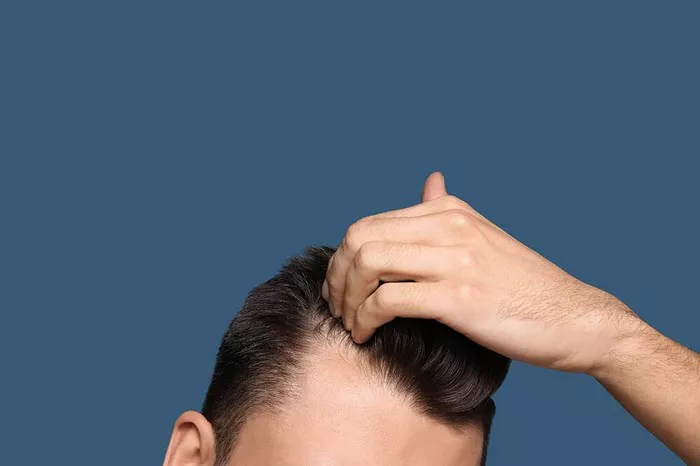Hair loss can be a distressing experience, prompting individuals to seek answers and solutions. Understanding the underlying causes of hair loss often begins with a thorough examination of one’s health, and blood tests play a crucial role in this diagnostic process. In this article, we will explore the essential blood tests for hair loss, shedding light on how these tests can provide valuable insights into the factors contributing to hair thinning and balding.
1. Complete Blood Count (CBC)
The Complete Blood Count (CBC) is a fundamental blood test that provides an overview of the various blood components. It assesses red and white blood cell counts, hemoglobin levels, and platelet counts. While not specific to hair loss, a CBC can identify potential underlying conditions, such as anemia, that may contribute to hair thinning. Anemia, characterized by low iron levels, can impair the ability of blood to carry oxygen to the hair follicles, affecting their health and leading to hair loss.
2. Iron Levels (Serum Ferritin)
Low iron levels are a known contributor to hair loss, making serum ferritin levels a crucial aspect of a comprehensive hair loss blood panel. Ferritin is a protein that stores iron, and insufficient levels can result in decreased oxygen supply to the hair follicles. This can lead to a condition known as telogen effluvium, causing increased shedding of hair. Monitoring and maintaining optimal serum ferritin levels are essential for promoting healthy hair growth.
3. Hormone Levels (Thyroid Function Tests)
The thyroid plays a pivotal role in regulating metabolism, and imbalances in thyroid hormones can impact hair health. Thyroid function tests, including measures of thyroid-stimulating hormone (TSH), free thyroxine (T4), and triiodothyronine (T3), help assess thyroid function. Hypothyroidism (underactive thyroid) or hyperthyroidism (overactive thyroid) can both contribute to hair loss. Identifying and addressing thyroid issues can play a significant role in managing hair loss.
4. Hormone Levels (Hormone Panel)
Hormonal imbalances can be a key factor in hair loss, especially in conditions such as polycystic ovary syndrome (PCOS) or androgenetic alopecia. A comprehensive hormone panel may include assessments of testosterone, dehydroepiandrosterone (DHEA), and other androgens. Elevated levels of androgens, particularly dihydrotestosterone (DHT), are associated with male and female pattern baldness. Understanding hormonal influences can guide targeted interventions to manage or mitigate hair loss.
5. Vitamin D Levels
Vitamin D is essential for various bodily functions, including hair follicle health. Low levels of vitamin D have been linked to conditions such as alopecia areata and telogen effluvium. Checking vitamin D levels is crucial, as deficiency may contribute to hair thinning and loss. Sun exposure and dietary sources of vitamin D are essential for maintaining adequate levels and supporting overall hair health.
6. Zinc Levels
Zinc is a vital mineral that plays a role in hair cell regeneration and overall scalp health. Deficiency in zinc has been associated with hair loss conditions such as telogen effluvium and alopecia areata. Measuring zinc levels through a blood test can help identify and address potential deficiencies, providing a targeted approach to support healthy hair growth.
7. Inflammatory Markers (C-reactive Protein)
Chronic inflammation is increasingly recognized as a contributing factor to various health conditions, including hair loss. Elevated levels of inflammatory markers, such as C-reactive protein (CRP), may indicate systemic inflammation that could impact hair follicles. Identifying and addressing underlying inflammation through lifestyle changes or medical interventions may positively influence hair health.
8. Blood Glucose and Insulin Levels
Insulin resistance and elevated blood glucose levels have been linked to conditions like androgenetic alopecia. Monitoring fasting blood glucose and insulin levels can provide insights into metabolic health and potential links to hair loss. Maintaining stable blood sugar levels through a balanced diet and lifestyle changes may positively impact hair health.
9. Vitamin and Mineral Panel
A comprehensive vitamin and mineral panel can offer a detailed assessment of essential nutrients that play a role in hair health. This may include vitamins such as Biotin (B7), B12, and folate, as well as minerals like selenium and magnesium. Deficiencies in these nutrients can contribute to hair loss, and addressing specific deficiencies can be part of a targeted approach to support healthy hair growth.
10. Consulting a Healthcare Professional
While understanding the significance of these blood tests is crucial, it’s important to note that interpreting results and developing a tailored approach to address hair loss should involve consultation with a healthcare professional. Dermatologists, endocrinologists, or trichologists specializing in hair disorders can analyze the results in the context of an individual’s overall health and provide guidance on potential interventions.
See Also: [Revealed!] The Reasons Behind the Urge to Pull Out Hair
Conclusion
Unlocking the secrets behind hair loss begins with a thorough examination of one’s health, and blood tests play a pivotal role in this process. From assessing iron and hormone levels to examining inflammatory markers and nutrient status, a comprehensive blood panel can provide valuable insights into the factors contributing to hair loss. Armed with this knowledge, individuals can work with healthcare professionals to develop personalized strategies for managing and addressing hair thinning, fostering a path toward healthier and more resilient hair.


